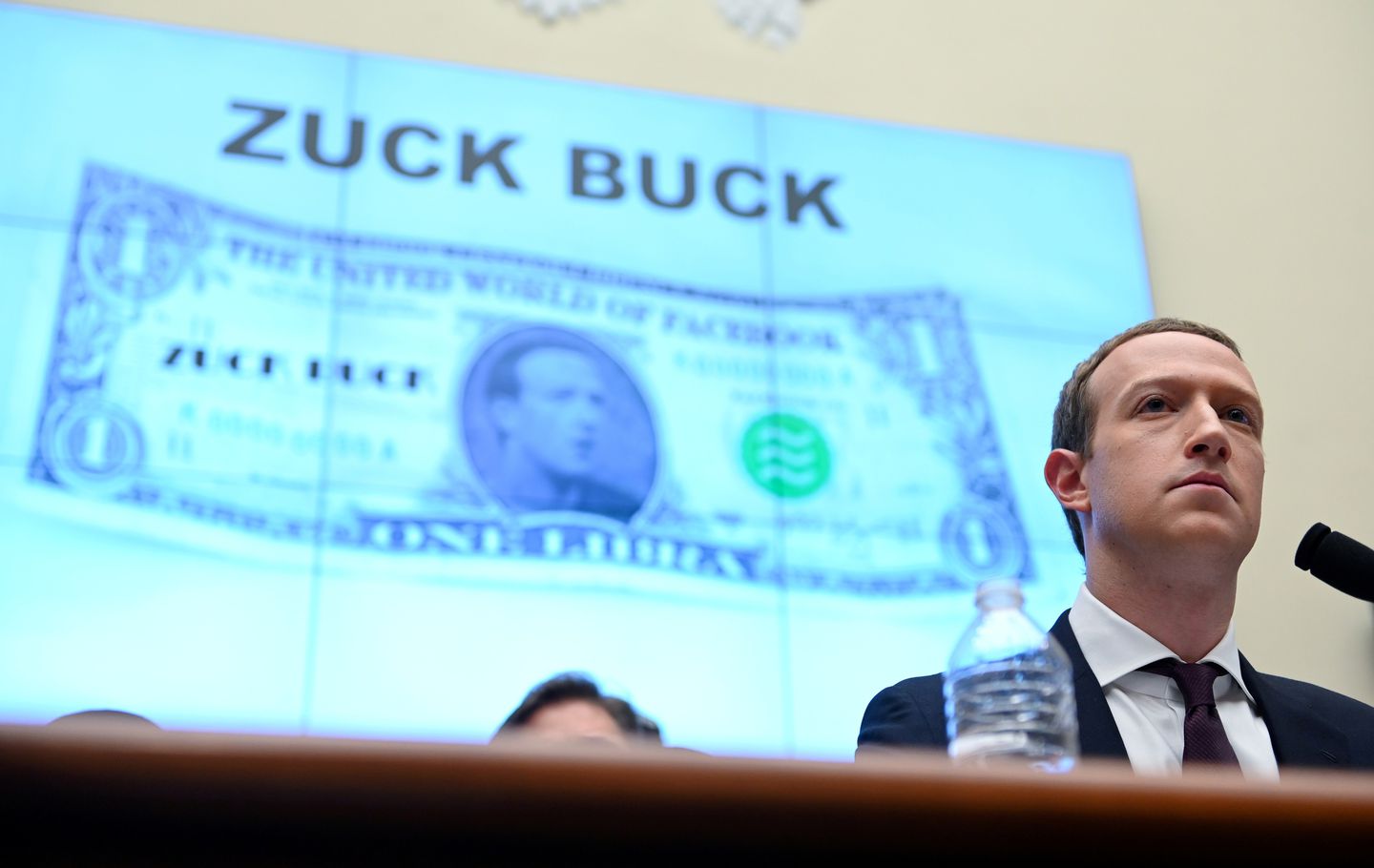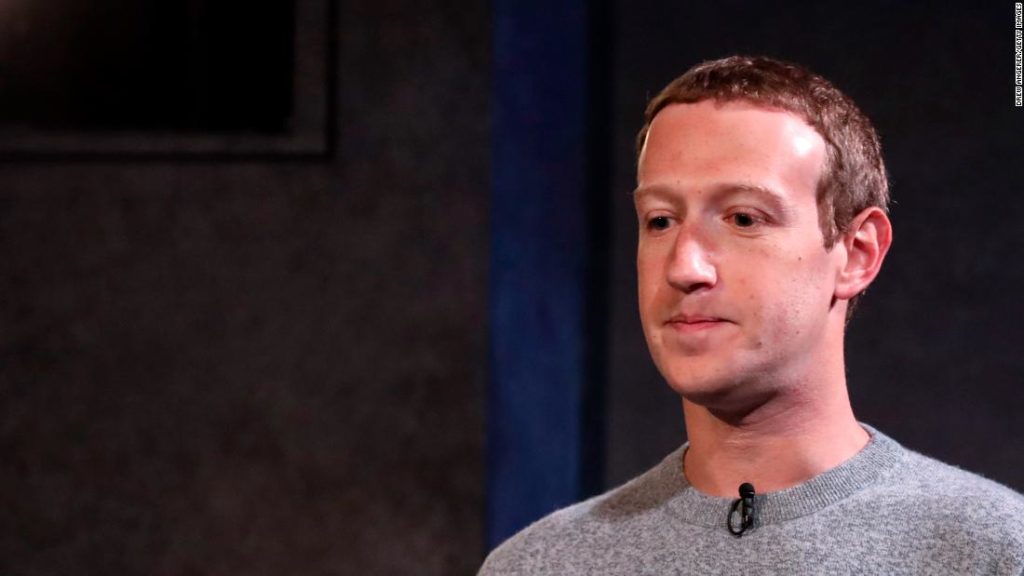 When Mark Zuckerberg testified before Congress to advocate for Libra , Facebook’s new venture in blockchain currency, he cast it as a way to way to alleviate global poverty.Millions of people in the United States, and billions worldwide, lack access to basic banking services in what he characterized as a “stagnant” and exclusionary financial system.“It’s failing them,” said the Facebook chief executive, later adding, “The Libra project is about promoting financial inclusion through a safe, low-cost and efficient way of sending and receiving payments around the world.”
When Mark Zuckerberg testified before Congress to advocate for Libra , Facebook’s new venture in blockchain currency, he cast it as a way to way to alleviate global poverty.Millions of people in the United States, and billions worldwide, lack access to basic banking services in what he characterized as a “stagnant” and exclusionary financial system.“It’s failing them,” said the Facebook chief executive, later adding, “The Libra project is about promoting financial inclusion through a safe, low-cost and efficient way of sending and receiving payments around the world.”
Zuckerberg is absolutely right: Banks no longer serve low-profit customers and communities.Deregulation and waves of mergers and consolidations have created banking deserts across the country, where the only ATM in town can charge up to $7 per transaction , and check cashers and payday lenders have filled the void.Even when they make branches available, banks repel low-income depositors with charges and fees , or with three- to five-day payment processing delays that overburden those who need their weekly paychecks to cover their immediate expenses.As a result, one in four Americans is unbanked or underbanked .Low-income families spend billions of dollars and valuable time paying for checks to be cashed, refilling prepaid debit cards and paying bills in person.
But the solution won’t come from a new, privately controlled cryptocurrency system, one rife with potential risks.
AD AD Facebook’s Zuckerberg takes broad lashing on Libra, 2020 election and civil rights at congressional hearing
Fintech companies and cryptocurrencies have been promising for almost a decade that technology is the answer to financial inclusion, but none have delivered.For all their expertise in cutting-edge technology, these innovators have not demonstrated even a rudimentary understanding of the lives of the poor: Tech entrepreneurs usually start with a cool technology and only afterward make claims about helping the marginalized, rather than collecting data about what these communities really need and meeting those needs.
The unbanked and underbanked are often stuck in a cash economy, do not have Internet access or rely on brick-and-mortar establishments to convert cash into digital.Facebook has no physical locations — certainly none in America’s banking deserts.Most of the unbanked or underbanked either do not have enough money for a bank account, do not trust banks or prefer the informal face-to-face transactions that check cashers can provide at all hours.The preferred method of payment for low-income Americans is a debit card — an old technology that nevertheless remains inaccessible for many.
The blockchain ledger may represent a big technological leap forward, but our financial system’s problems with exclusion and inefficiency don’t result from faulty technology.Our current payments system already can provide services to the underbanked and fulfill Libra’s promise to allow users to send money as fast as one sends a text: Venmo, Square, PayPal, credit card apps and other mobile banking platforms perform that function.But all require users to have bank accounts.Public policy dictates that only banks can access the payments system, and the banks made a business decision to drop their least profitable consumers while regulators have stood by.
In many ways, cryptocurrency is a solution in search of a problem.Or, rather, it solves one particular problem — making fast and anonymous transactions at the touch of a button — and does that only by bypassing regulatory controls.
AD AD People love Facebook so much they wouldn’t quit unless we paid them — a lot
The Know Your Customer requirements, for example, mandate that banks verify the identity of their customers and stop suspicious activity, which might include funding terrorist groups or sex or drug trafficking.
Further restrictions on money transfer attempt to combat the trillions of money laundered annually .Other regulations, including the Bank Secrecy Act, force banks to closely monitor all transactions.All of these laws make the banking system less agile than a new Facebook currency could be, but that built-in friction prevents crime, protects consumers and reduces systemic risk.
In attempting to circumvent other important safeguards, Libra could create liquidity or systemic risks that the entire federal banking framework was set up to prevent.The banking system is insured and protected by a massive federal infrastructure, including Federal Reserve liquidity support, FDIC insurance and a secure payments system.
These restrictions, the product of centuries of trial and error, were designed to prevent specific historic harms like constant bank runs , liquidity crises and monetary instability .They are designed to protect customer deposits and the integrity of the payments system.Private companies shouldn’t be allowed to bypass these safeguards in the name of international competition.Zuckerberg has warned that China is “ moving quickly to launch similar ideas ,” but even the Chinese government prefers to invest in U.S.Treasurys over other options: The U.S.
dollar is the world’s preferred currency because of these safeguards — not despite them.Facebook has yet to demonstrate that it can be trusted not to compromise and manipulate our personal information — do we really want to trust them with our money?
By creating and controlling a currency system, Facebook will be positioned to make decisions that will affect the entire economy.(Facebook has promised that it is not trying to compete with the U.S.
dollar or create an alternative currency, but that’s exactly what Libra is: a form of value that can be exchanged among businesses and individuals.That is the definition of currency.) Outsourcing important monetary policy decisions to any private company, but especially one as large and reckless as Facebook, carries huge risks.If Libra succeeds in dominating the payments system as it already has in so many other sectors, the Libra will be an independent form of currency, one not issued by the Treasury.Any new currency is inherently volatile, but because Libra is pegged to the U.S.
dollar, Libra’s risks will affect the dollar’s risks.Libra also links the dollar to a basket of other currencies, which creates openings for currency speculation, liquidity crises or a situation where the Libra association (a group of tech insiders unlikely to exert any independent control) makes de facto decisions that affect the currency decisions of sovereign nations.
AD AD It’s true that financial inclusion would help millions of Americans and benefit the economy.But it can be achieved through time-tested and democratic institutions.In fact, the United States already has a public payments system: the Federal Reserve.Congress created the Federal Reserve in 1913 as a people’s central bank, with a mandate to establish payments markets with an “ overall concern for safety and soundness, promotion of operating efficiency, and equitable access .” The Fed’s charter explicitly states that it exists “to serve the public interest” and to increase the integrity, efficiency and equity of U.S.payments.It was a public institution by design and has remained the most secure and trusted network worldwide.
Thus far, the Fed has made its payments system available only to banks, but it could open that system to all Americans with a few easy reforms.FedAccounts , for example, would enable any individual or business to access the payments system.
Real-time payments would remove the unnecessary delay in payments processing.Then there’s my personal favorite: retail point of contact operations such as a post office checking account .
These would allow the unbanked or underbanked to have a simple checking account at their local post office, to get their paychecks cashed immediately and then to use whatever mobile app they prefer to send and receive money.Such simple policy changes could increase savings, ease access to funds, and help many individuals and communities cross the cash-digital divide.
Zuckerberg says Libra will help the disadvantaged, a highly dubious claim for a massive private corporation that mainly aims to create shareholder profits.It is ironic for “the richest man in the world to come here and hide behind the poorest people ,” as Rep.Brad Sherman (D-Calif.) pointed out.That’s because the financial system’s issues are not problems with technology: They are problems of policy.They should be addressed in Congress and the people’s bank, not in Facebook’s boardroom.
Read more:
Facebook’s Libra cryptocurrency is part of a disturbing financial trend
Inside the unscrupulous world of social-media manipulation with a penitent whistleblower
AD AD.
